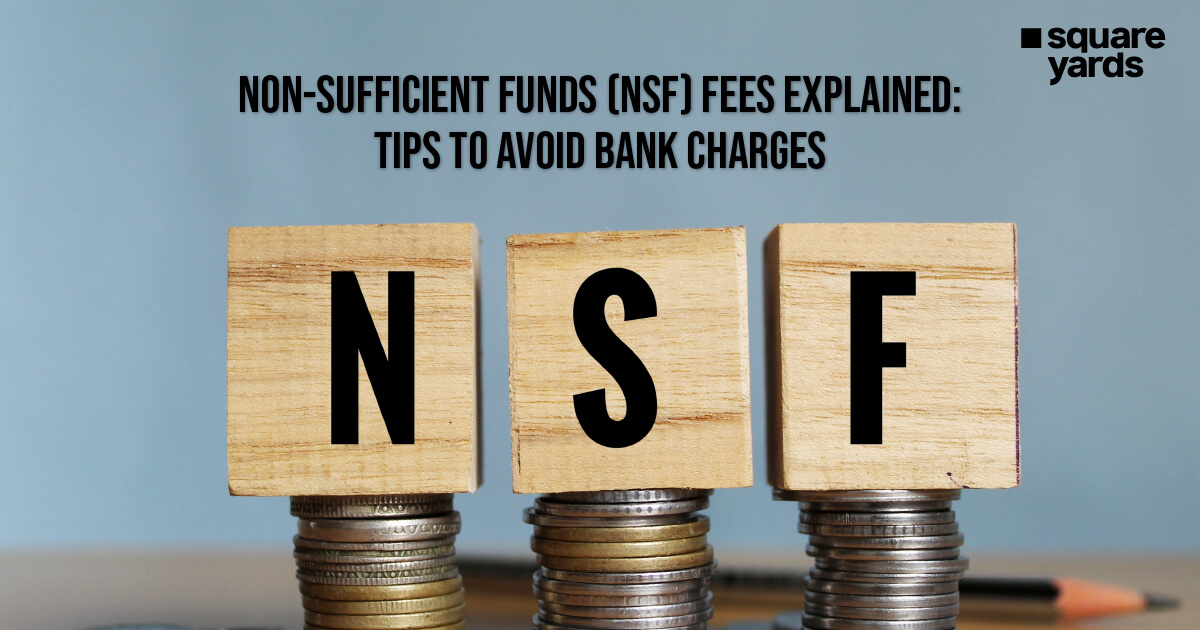Management of personal finance in Canada is based on making decisions about your money based on what you know. It’s difficult to know where to begin when there are so many options. However, having a strategy in place is crucial, whether you are saving for retirement, paying off debt, or investing. Canadians may make sound choices with regard to their finances and reach their goals with careful planning and budgeting.
This detailed overview has everything a Canadian resident needs to know about personal money, whether they are a complete financial rookie or a seasoned financial advisor in Canada.
Personal Finance: What Is It?
Personal financial management in Canada includes making a budget, investing, saving, and taking care of one’s possessions. It’s a major part of financial planning in Canada, and it entails choosing the best course of action for one’s own money. A financial adviser in Canada is a useful resource for anybody looking to build a solid financial foundation and learn best practices for handling personal finances.
However, financial advisors in Canada aren’t the only option for Canadians who want to get a handle on their money. In order to do this, one must make a budget and establish both long-term and short-term financial objectives. People should also try to save a certain percentage of their monthly income and make financial priorities a part of their lives.
Canadians may stretch their dollars farther by investing in the economy and investigating tax advantages. Deliberate preparation may increase Canadians’ long-term financial security.
How Important Is Personal Finance?
In Canada, one’s own financial situation is a crucial part of one’s everyday existence. With rising costs of living, taxes, and other necessities, it may be important to manage personal finances to stay financially stable. You can have a more stable financial future if you budget, save, and invest carefully and in a planned way.Financial planning for Canadians is for the following reasons:
-
Maintaining a Comfortable Lifestyle
With the help of a well-thought-out personal finance strategy, Canadians can make sure they are financially secure now and in the future. You may get the help you need with saving, investing, and managing your money from a financial adviser in Canada.
-
Pursuing Monetary Objectives
Canadians, like people elsewhere, need to set and stick to financial plans if they want to succeed in the short and long terms. Canadians who are interested in achieving their financial objectives should engage in financial planning.
-
Pension Preparation
In Canada, retirement savings planning is an integral aspect of sound personal finance. Putting together a retirement strategy includes putting money aside, investing money, and making plans for when you retire.
-
Managing Your Taxes
Tax preparation is an additional component of sound personal finance in Canada. Knowing the tax code is essential for lowering your bills and making the most of tax breaks.
-
Paying Off Debt
The Canadian government recognises the importance of personal debt management. It entails figuring out debt management and debt reduction solutions.
Personal Finance in Canada: 9 Foundational Elements
The only way to have financial security and stability is to manage your own money carefully. The nine pillars of personal finance in Canada are the foundation on which a person can build a secure financial future.
The nine tenets are as follows:
1. Budgeting
The ability to plan and control expenses, save money, and put money aside for future plans is made possible by creating a budget, which is a crucial part of financial planning. This entails establishing monetary objectives and monitoring spending habits. A solid budget will include savings targets to ensure that money is being saved for future needs. It’s also important to make adjustments to a budget based on one’s actual circumstances and desired outcomes.
2. Saving
If you want to be financially secure, you need to save money. Having a savings account and contributing to it on a regular basis allows you to take advantage of compound interest in the event of an emergency.
3. Investing
Putting money into investments allows you to maximise its potential return. Putting your money to work for you in the market is how you can grow your wealth. Investments that are properly diversified may also help shield wealth during economic downturns.
4. Debt Management
Debt may weigh you down, so it’s crucial to have a plan for paying off your obligations. Debt consolidation, negotiations with creditors, transferring balances to accounts with lower interest rates, and paying off high-interest debt are all options.
5. Insurance
Including insurance in your budget is a must. It may be used to safeguard your financial interests and those of your loved ones in the event of your untimely death or serious illness.
6. Retirement Planning
Creating a retirement plan that takes into account your present and future needs is an important part of retirement planning.
7. Estate Planning
The purpose of estate planning is to organise the distribution of your property after your death. Among these options are writing a will and establishing trust.
8. Financial Planning
The term “financial planning” refers to a wide-ranging strategy for handling money. Budgeting, savings, and investment are all part of financial planning for Canadians, as are debt management, insurance, retirement and estate planning, and tax preparation.
9. Tax Planning
There is no financial planning without tax planning. To do this, one must take advantage of tax breaks such as deductions, credits, and exemptions. Canadians can reach their financial goals and feel secure by adhering to these nine tenets of personal finance. Having a financial plan and working with a financial advisor in Canada is crucial to controlling your finances.
Here Are 7 Crucial Tips For Personal Finance
To make educated judgments about your money, it’s vital that you, as a Canadian, be abreast of current financial trends. if you live in Canada and want to better manage your own money, here are seven personal finance management tips to try.
1. Create a spending plan
A current budget is a necessary component of any sound financial strategy. By keeping track of your income and expenses, you’ll have a better idea of how much room there is in your budget for savings and investment.
2. Don’t lose track of your money
Keeping track of your spending might help you identify wasteful habits and react accordingly. To manage your money well and stay within your budget, you need to keep a detailed record of everything you spend.
3. Get yourself an emergency fund
To protect against unforeseen costs, an emergency fund is a must. This may be used to pay for things like medical care or automobile repairs that weren’t budgeted for.
4. Finance the correct projects
Putting your money into investments may help you build wealth and ensure your financial future. Careful planning is needed to know where to invest and how to deal with the risks involved.
5. Deal with debt
Debt may have a significant influence on one’s financial well-being and must be managed with care. Don’t take on more financial responsibility than you can reasonably manage, keep interest rates low, and prioritise paying off debt.
6. Use available tax breaks
To help Canadians pay less in taxes, the government offers a number of tax benefits. The more you know about and use these credits, the less you’ll owe in taxes and the more money you’ll keep.
7. Consult with monetary experts
In Canada, personal finances are hard to understand and should be discussed with a trained financial advisor. A financial counsellor may assist if you have trouble making sound financial choices or formulating a workable strategy. if you follow these seven personal finance management tips, you should be able to improve your financial situation in Canada and set yourself up for a secure future.
Conclusion
Financial responsibility is an integral aspect of a healthy lifestyle in Canada. Planning for personal finance in Canada is essential and should be thought about and planned for carefully. If you take the time to assess your current financial standing and draft a spending plan, you will be better able to maximise your resources, realise your dreams, and safeguard your future. Finding a financial advisor in Canada, making a budget, and setting financial goals are all part of the process that might help with financial planning for Canadians. furthermore, with these personal finance management tips, you can get started right away by figuring out what you want out of life financially and creating a budget to help you get there.
You May Also Read :
| Manage Banking In Canada | Banking In Canada |
| Overview of First Home Savings Account | First Home Savings Account |
| 2023 Mortgage Rates Canada | Mortgage Rates Canada |
| Guide To Home Renovation Loans | Home Renovation Loans |
Frequently Asked Question (FAQs)
What is the 50-30-20 rule?
The 50-30-20 rule is a common budgeting guideline that recommends setting aside 50% of income for mandatory expenses, 30% for wants, and 20% for savings. With this method, keeping track of monthly expenses is now easy and efficient.
What is the 70-20-10 Rule money?
As part of a balanced budget, the 70-20-10 Rule proposes putting 70% of income towards essentials, 20% towards wants, and 10% towards savings. This simplifies one's personal financial management while still providing some spending leeway.
What is the 50-40-10 rule?
You should spend no more than half of your income on non-essentials, 40% on wants, and 10% on savings, according to the 50-40-10 budgeting guideline. There is some leeway here compared to the 50-30-20 guideline, but it's still a solid framework for organising one's money.
What is the 40-20-10 rule?
The 40-20-10 budgeting guideline recommends setting aside 10% of the money for savings while spending 40% on essentials and 20% on wants. If you want to put more of an emphasis on savings, this conservative budgeting method is for you.
Why does the 50-30-20 rule not work?
As it ignores certain potential costs and sources of revenue, the 50-30-20 rule is not appropriate for all households. Investments and other forms of long-term planning are also ignored. It's better to make a budget that's tailored to your own situation and objectives.











